Graham Reid | | 5 min read
Dropkick Murphys: Hang 'Em High
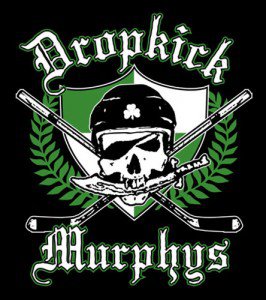
From the first enjoyably rowdy bars of
the new Dropkick Murphys album Going Out in Style you can sense that
here is a band whose time has come. With the rollicking outlaw roar of Hang 'Em
High then the title track – an old Irishman considering a boozy
wake and who he should invite – the sound of the band's Celtic-punk
is roof-rattling and energetic.
For the band – formed in '96 and
hitting a pace in the early Nineties – it has been quite some
upward trajectory. They underwent the usual line-up changes in their
early years (singer Al Barr arriving in '99); built a steady and
loyal following among the Boston-Irish but toured internationally at
every opportunity (three times in New Zealand); collaborated with
Shane McGowan of the Pogues; and brought in a fulltime piper.
They have had their songs adopted by
the Boston Red Sox and placed in movies (Fever Pitch, The Departed,
The Fighter) and received the ultimate accolade when their song I'm
Shipping Up to Boston with lyrics by Woody Guthrie was featured in a
Simpson' episode (The Debarted).
In 2009 they toured with Springsteen,
an he guests on the new album on their makeover of the traditional
song Peg O' My Heart.
 The hard work has paid off for these
working class heroes, and singer Al Barr (left) is delighted when he speaks to Elsewhere on the eve of leaving for a European tour.
The hard work has paid off for these
working class heroes, and singer Al Barr (left) is delighted when he speaks to Elsewhere on the eve of leaving for a European tour.
Congratulations on the album, your
highest debuting album in the States I believe. What do you
attribute that to?
My theory on a record doing better than
a previous one is the time before spent laying the groundwork. You
hope you grow with every record but the feedback on this one from the
critics and the fans has just been phenomenal.
I think it is an interesting record,
but let's talk about the groundwork because you have had an
increasingly high profile through movies, touring with Springsteen
and of course in your hometown and around Boston. You've had a
relentless momentum in the past five years.
Yeah, we seem to be busier and busier
and playing now to people whose radar we were not normally on. That's
very gratifying.
You are in a nominally Irish band but
your family background is Scottish?
Yes, Scottish and German. I believe we
are from Edinburgh but I know very little about that, I know more
about my German side. I tried researching in Edinburgh once when we
were there but there was some glitch in their computer system and they couldn't
find it.
Let's talk about this album with the
composite character of Cornelius Larkin. These are family stories of
band members assimilated into this character?
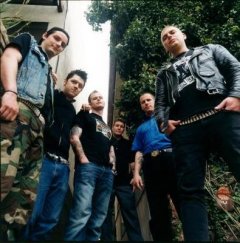 Yeah, he came about because we
recognised this character in the song Going Out In Style and after
looking at the lyrics we thought it would be cool to carry him
through the album. The songs were definitely inspired by the idea of
the character and our personal lives are wrapped in there.
Yeah, he came about because we
recognised this character in the song Going Out In Style and after
looking at the lyrics we thought it would be cool to carry him
through the album. The songs were definitely inspired by the idea of
the character and our personal lives are wrapped in there.
[Guitarist/singer James Lynch's] Irish grandfather's first name was
Cornelius and he fought on the side of America in the Korean War and
won the Purple Heart and met his sweetheart. And the song 1953
reflected that.
So there was definitely family, and
those things important to the band like family loyalty, woven
into the character of Cornelius.
One thing I liked is that unlike so
many concept albums this wasn't so specific that it shut you out, but
here was an album which is very open to interpretation. Anyone
anywhere in the world can punch the air and say “I'm not going to
let the bastards grind me down”. I thought it was an intelligent way
of constructing the concept.
Thank you. We were happy with how it
came about. We were at a real crossroads with where we could go. When
you are onto your seventh studio album we had a sound in terms of
cultivating it with the punk and the folk in one song, as opposed to
separating. But then the question was how to make it fun for us, but
working with [producer] Ted Hutt meant we could get it to a level we
had hoped it would go.
I've spent time in Ireland and spoken
to many Irish musicians and what I observe is they keep names alive
in song, especially martyrs. This album keeps a name alive, even
though it is an imaginary person.
I see that in Irish music but I doubt
it was that conscious for us. We played Ireland for the first time in
'99 when we were a four-piece and more of a punk-rock band with a
Celtic influence but we didn't have the luxury of taking the other
players. We just played one show in Dublin but we were blown away and
we've kept coming back.
It's always a good reception but it's
small. There are certain kinds of music the mainstream like there and
kinds it doesn't like. We fall on the “don't like”, and on the
other side there's traditional music . . . and Boyzone. [Laughs]
I can understand you would be big in
the Boston Irish community, but where in the States do you play the
best?
We have this luxury of crazy loyal fans
everywhere, wherever we are. We'll be busy through this year. After
Europe and the States we'll be in Canada and then the West Coast and
to Europe again.
The things that's fun, we realised this
. . . we went on tour the week before the album was released so we
didn't see people taking the songs in, the songs hadn't marinated.
But we were so excited about them . . . but we'd come off stage and
go, “Shit, these songs aren't going over”. But by the time we go
to the end of that tour people had had the time with the songs and
had embraced them. That was very inspiring.
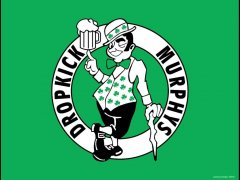 This will be the first time we'll be
going to Europe since the record has come out but they've had the
time, so that will be interesting.
This will be the first time we'll be
going to Europe since the record has come out but they've had the
time, so that will be interesting.
I wonder how in Stockholm people connect to this.
Do they just take the punk-rock element or do they
get the Irish story?
It seems like Irish music and the
storytelling translates everywhere we go. And every city in every
part of the world has an Irish pub!

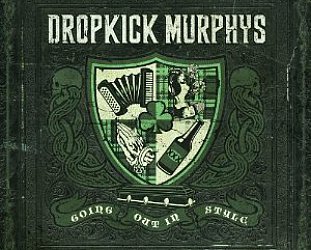
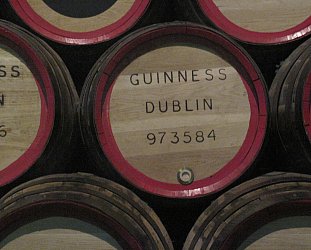
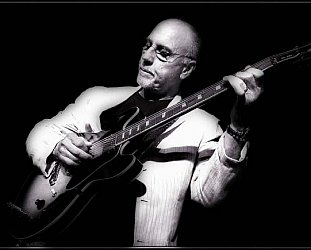


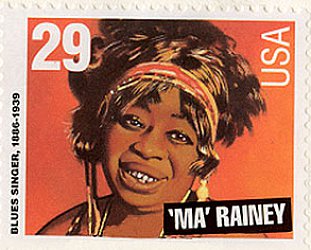
post a comment